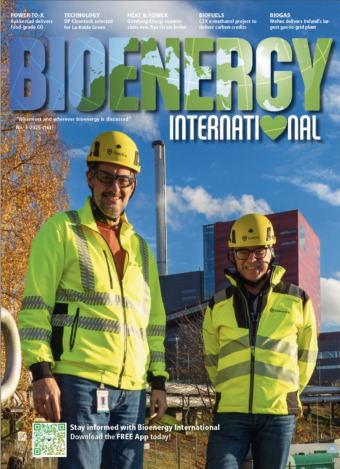Ghana is grappling with the severe issue of deforestation, marked by the extensive clearing of forests. It is also the world's second largest cocoa producer. A new project ‘Partnership for Deforestation-free Cocoa supply chains’ (P4DCG) aims to transform the cocoa sector with regenerative agriculture.
Together, Côte d’Ivoire and Ghana account for around 50 percent of global cocoa production, while Europe is the largest cocoa bean processor, processing over one-third of the annual global harvest according to the International Cocoa Organization (ICCO).
Cocoa is one of the agro-commodities encompassed by the upcoming EU Regulation on Deforestation-free Products (Deforestation Regulation – EUDR).
P4DCG is initiated by Proforest Ltd, a UK-headed non-profit focused on agricultural commodity production and sourcing that can deliver positive social and environmental outcomes, in partnership with Fairtrade Africa, a member of Fairtrade International and the umbrella network organization representing Fairtrade-certified Producer Organizations in Africa and the Middle East that in turn represent over 1,354,000 farmers and workers in 660 producer organizations spread across 28 countries in Africa and the Middle East.
Support climate-smart and dynamic agroforestry
By supporting cocoa farming communities in adopting climate-smart practices and implementing dynamic agroforestry, this project will contribute to safeguarding Ghana’s forests and preserving its rich biodiversity.

The project, funded by the International Climate Initiative (IKI) targets over 14,000 smallholder cocoa farming households in Ashanti, Eastern, and Ahafo Regions, with 35 percent participation by women.
The P4DCG project will focus on skills development in agroecology, traceability systems, financial inclusion, gender equality and youth inclusion.
Some expected outcomes are improved productivity through regenerative agriculture and improved producers’ income through financial inclusion and diversification.
The project has the potential to change the way we do our cocoa farming from current unsustainable practices to more sustainable regenerative agricultural practices that will contribute to soil conservation, increase yield in the long term, and meet any market requirements, including EUDR, said James Parker, Head of Proforest Africa Programmes.
This project directly contributes to climate change adaptation efforts in Ghana, which supports the objectives of the Ghana REDD+ Strategy.
Initiatives like the P4DCG project, that target cocoa landscapes with the overall aim to transform the sector with regenerative, climate-resilient practices, align with Fairtrade Africa’s strategic goals of sustainable farming systems and transformed, inclusive and strengthened producer organisations, explained Chris Oluoch, Programmes Director of Fairtrade Africa.



